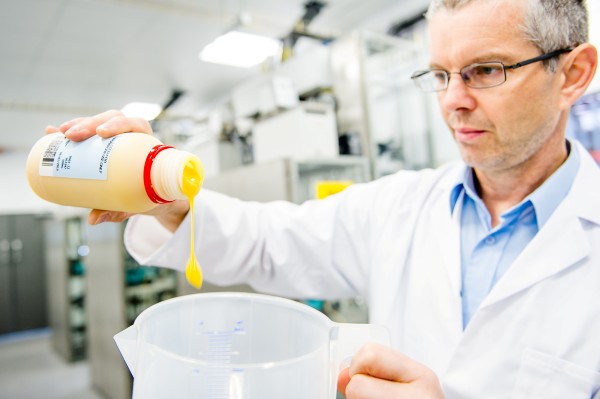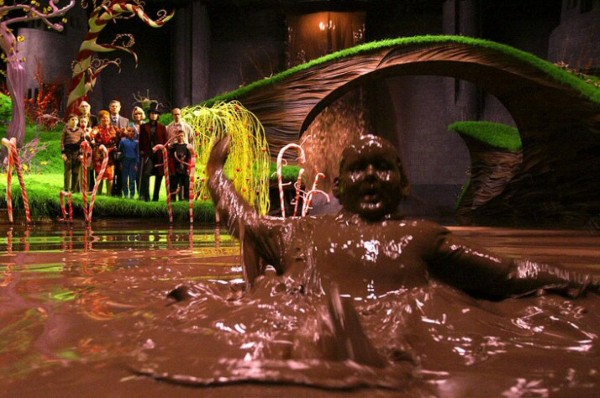A LEADING manufacturer of bespoke special effects for blockbuster films has reduced its lighting energy consumption by 73% thanks to a new LED solution from MHA Lighting.
Vickers Laboratories Ltd is a chemical manufacturing facility that can name world-renowned film, TV and theatre production companies as some of its clients.
Within its laboratories the company created the world-famous chocolate river in Tim Burton’s Charlie and the Chocolate Factory starring Johnny Depp, and the “ewe’s milk bath” for Charlize Theron to emerge from as the Evil Queen in 2012’s Snow White and the Huntsman.
The Leeds based chemical manufacturer has also provided various forms of goo and gunge for films and TV series’ such as Clash of the Titans, Sweeny Todd, Emmerdale and Doctor Who, creating a plethora of potions for scenes that require realistic special effects - from alien blood to liquid gold.
Vickers Laboratories Ltd also produces the monomer used in the manufacturing process of the latest generation of Silicone-hydrogel contact lenses, sold under the OPTOMER® brand.
 |
New LED luminaries provide high performance working space for Vickers Labs. (MHA Lighting/LEDinside)
|
Due to increasing demands for their cutting edge products, lab bosses needed to increase their capacity by designing a purpose-built manufacturing facility adjacent to the existing site.
High quality light uniformity and high colour rendering was a key consideration in the design of the new lab to ensure that staff at Vickers Laboratories Ltd could create their products and carry out true colour inspection within a well-lit environment.
MHA Lighting installed its LightStar202 LED luminaires in the brand new laboratory, reducing overall lighting energy consumption in the area, providing a lifetime saving of £8,333 and a 22Tonne reduction in Co2.
At the same time Lux levels in the lab were improved, with the LightStar product delivering 500 lux to the equipment and work spaces.
MHA Lighting MD Tom Harrison said: “Our new LightStar luminaire is one of the most ruthlessly efficient products on the market.
“We believe it is unrivalled in light quality and distribution and energy efficiency. It is also incredibly versatile – allowing the client to select from a range of wattages (15 to 121w) to deliver between 100 to 123 lumens per circuit watt and providing a total lumen output of between 1845 and 12100.
“Combining this high performance with un-rivalled light distribution from the luminaire enables us to install fewer fittings too, creating a multiplier effect in terms of energy savings and payback periods for clients like Vickers Laboratories Ltd.
“We are delighted that this has been such a successful project. It has been a pleasure to work alongside the Vickers team in devising a ‘made-to-measure’ lighting scheme for their brand new laboratory.”
The LightStar 202 (Diffused) specified at Vickers Laboratories is just 43w (inclusive of ballast). The light engine can also be driven at a range of wattages to increase or decrease light levels.
MHA’s sealed LED lighting units have been designed to stop dust and insects from gathering around warm light fittings, ensuring the laboratory area is kept as clean as possible - an essential requirement for the production of materials for medical devices like contact lenses.
 |
|
The chocolate river in the movie Charlie and the Chocolate Factory was created by Vickers Labs. (MHA Lighting/LEDinside) |
The fitting’s 66,000 hour minimum life span means that there is no need for regular maintenance and bulb replacement, which again stops dust from being distributed into the atmosphere. The lifespan can further be increased to a minimum of 109,000 hours if the driver is replaced at 66,000 hour point.
In addition, MHA’s installation included two occupancy sensors, further maximising on lighting energy costs when members of staff are not working within the lab.
Steve Foster, Vickers Laboratories Ltd’s Managing Director, said that switching to LED lighting was part of the forward-thinking company’s strategy to improve light levels in their labs whilst ultimately reducing associated energy costs and Co2.
Steve added: “Vickers Laboratories Ltd manufactures production chemicals for some of the biggest pharmaceutical and contact lens companies in the world, so quality assurance is absolutely essential.
“Complicated chemical processes are required to take place to create these products and so it is imperative that light quality and light uniformity is at the highest standard possible for our precision working.
“We knew that we needed to source lighting that would not only cut our lighting costs, provide a short payback period and offer long-term energy savings but also wasn’t over-the-top on capital cost.
“MHA handled the proposal and installation process with great detail and efficiency. We are delighted with the results.”





 CN
TW
EN
CN
TW
EN







